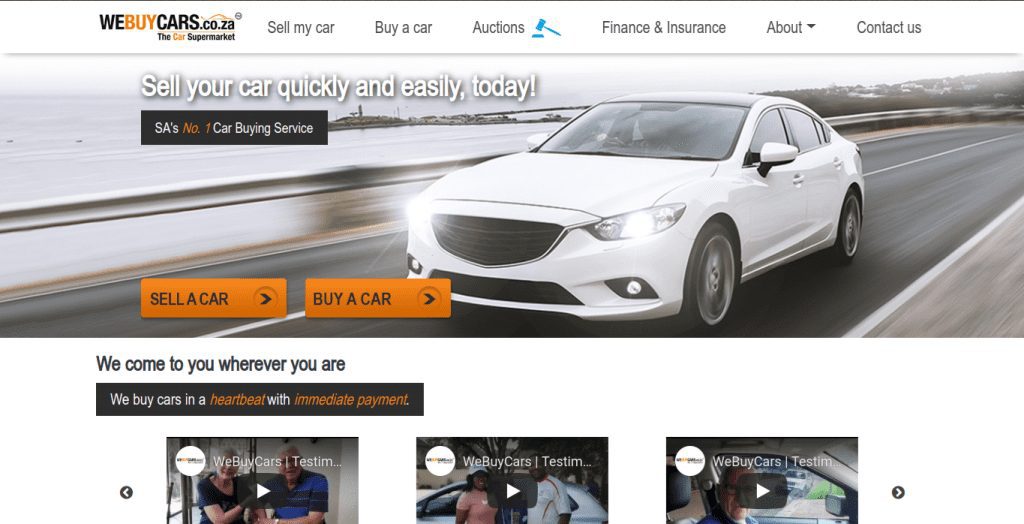As Naspers Sells Buscape To Zoom, Its WeBuyCars Deal Is Legally Threatened

South Africa’s conglomerate Naspers has agreed to sell Brazilian online comparison site Buscape to competitor Zoom, while the country’s Competition Commission has recommended that the company’s acquisition of WeBuyCars should be blocked.
June 2018, it was reported that Nasper had hired Citigroup Inc to help them in the sale of Buscape. The move was part of its strategy to focus its portfolio on classifieds, food delivery, and fintech startups. While the amount involved in the transaction remains officially withheld, the deal could be concluded this year.
Cape Town-based Naspers bought into the Sao Paulo site in September 2009. According to a Market Watch report, a 91 percent stake in the Brazilian company was acquired for USD 342 Mn. As of 2015, Naspers tried to sell Buscape but got discouraged by offers below the initial purchasing price.

The price comparison site attracts 15 million unique visitors and is underpinned by a network of 5,000 merchants and 12 million product offerings in many categories. If Naspers is agreeing to sell Buscape to Zoom, then it would mean that the South African firm found a better deal with the reliable storefront.
Meanwhile, Naspers is looking to buy WeBuyCars. The hitch in the transaction, however, has been brought on by the Competition Commission of South Africa who has said that the acquisition should be prohibited because it will prevent similar businesses from entering the market and dominate other competitors.
MIH eCommerce Holdings, an investment holding company of Naspers, was supposedly going to acquire a 60 percent stake in WeBuyCars, an S.A-based platform that makes it easy for people to evaluate and sell their cars quickly. MIH also has investments in OLX and the Naspers’ subsidiary, Car Trader, which operates as AutoTrader.

Since Naspers is not active in auto dealing, the commission was not able to find any competitor overlap that might result from the deal. It was however found that the group had been planning to make an inroad into S.A’s market for the wholesale and online buying of used cars in competition with WeBuyCars.
The commission said: “These entry plans were thwarted directly as a result of the merger. “Given this potential entry, the commission assessed if the proposed merger will result in the removal of potential competition in South Africa, as Naspers Group had plans to enter the South Africa niche wholesale buying of used car market segment utilizing the instant cash model and compete directly against WeBuyCars.”
According to the Commission, there is a vertical (supplier-customer relationship) overlap because the Naspers Group owns and operates online classified automotive advertising platforms, OLX, and Auto Trader, and WeBuyCars utilizes these platforms to either sell or purchase vehicles.
They believe that the proposed mergers will culminate in the foreclosure of other traditional dealers, which includes the rivals of WeBuyCars on the sell side. The commission also revealed that Naspers could harness the complementarities of WeBuycars and AutoTrader and/or OLX to the exclusion of effective competition against WeBuyCars rivals as well as other online platforms.
The commission also revealed that Naspers could harness the complementarities of WeBuycars and AutoTrader and/or OLX to the exclusion of effective competition against WeBuyCars rivals as well as other online platforms.
The commission said it is concerned that the proposed merger would result in the foreclosure of other traditional dealers, that is, rivals of WeBuyCars on the sell side.
It also discovered that the acquisition would spell the removal of Naspers as a potential effective competitor to WeBuCars in the used car wholesale and online buying niche, which the group currently dominates.
“This is because AutoTrader is a significant platform on which many traditional dealers advertise their cars and has the ability and incentive to offer preferential treatment towards WeBuyCars,” it said.
“Overall, the proposed transaction is likely to substantially prevent or lessen competition in the relevant markets and result in used car customers paying higher prices in future than they would otherwise pay in a competitive environment.”